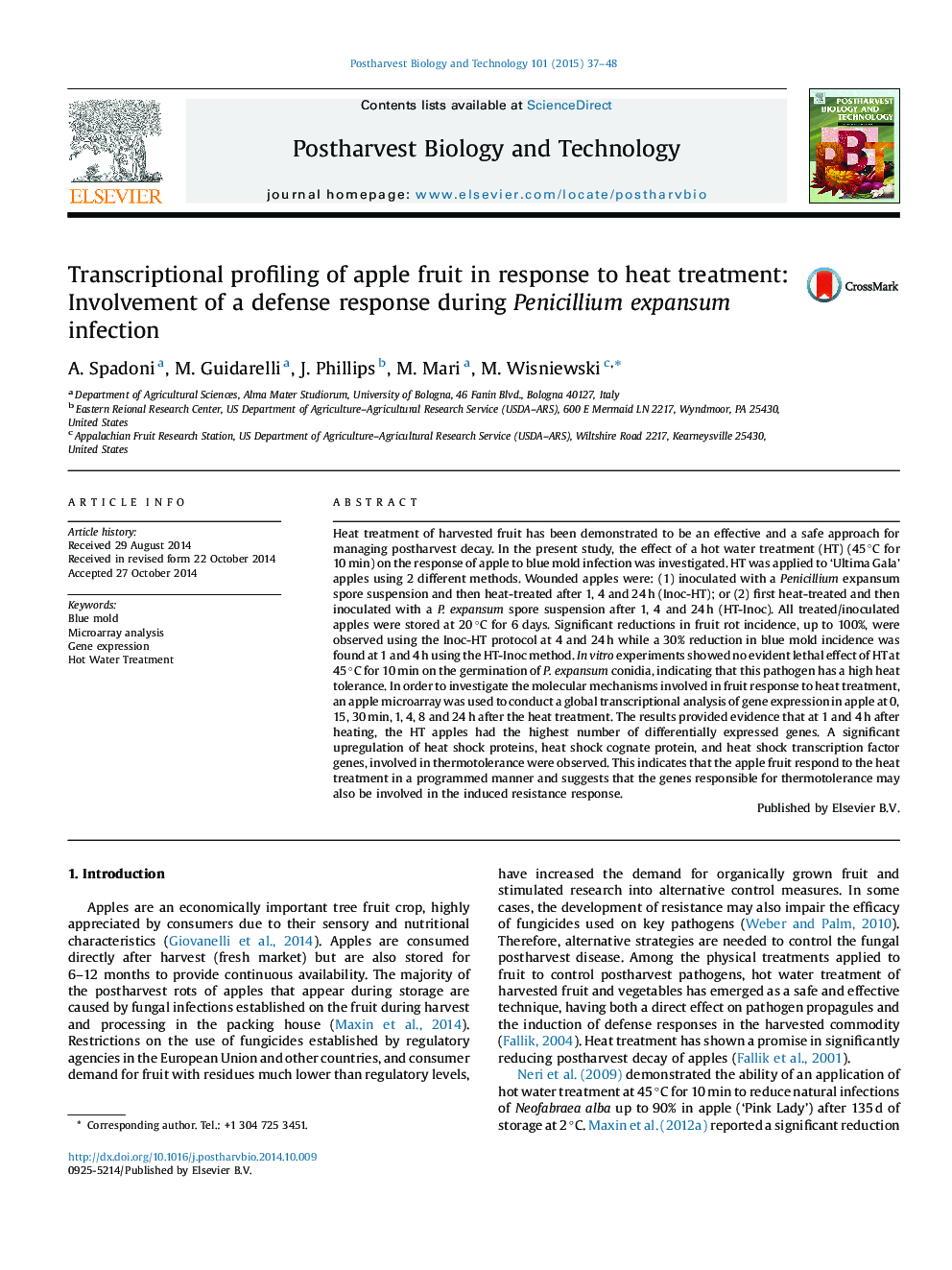| کد مقاله | کد نشریه | سال انتشار | مقاله انگلیسی | نسخه تمام متن |
|---|---|---|---|---|
| 4518040 | 1624993 | 2015 | 12 صفحه PDF | دانلود رایگان |
• A hot water treatment at 45 °C for 10 min was performed on ‘Ultima Gala’ apples.
• Significant reduction of blue mold was observed in fruit treated 4–24 h from inoculum.
• A 40,000 unigene apple microarray was applied from 0 to 24 h after the treatment.
• Upregulated genes were correlated with thermotolerance processes.
• HSP and HSP-related gene expression seems involved in the induced resistance response.
Heat treatment of harvested fruit has been demonstrated to be an effective and a safe approach for managing postharvest decay. In the present study, the effect of a hot water treatment (HT) (45 °C for 10 min) on the response of apple to blue mold infection was investigated. HT was applied to ‘Ultima Gala’ apples using 2 different methods. Wounded apples were: (1) inoculated with a Penicillium expansum spore suspension and then heat-treated after 1, 4 and 24 h (Inoc-HT); or (2) first heat-treated and then inoculated with a P. expansum spore suspension after 1, 4 and 24 h (HT-Inoc). All treated/inoculated apples were stored at 20 °C for 6 days. Significant reductions in fruit rot incidence, up to 100%, were observed using the Inoc-HT protocol at 4 and 24 h while a 30% reduction in blue mold incidence was found at 1 and 4 h using the HT-Inoc method. In vitro experiments showed no evident lethal effect of HT at 45 °C for 10 min on the germination of P. expansum conidia, indicating that this pathogen has a high heat tolerance. In order to investigate the molecular mechanisms involved in fruit response to heat treatment, an apple microarray was used to conduct a global transcriptional analysis of gene expression in apple at 0, 15, 30 min, 1, 4, 8 and 24 h after the heat treatment. The results provided evidence that at 1 and 4 h after heating, the HT apples had the highest number of differentially expressed genes. A significant upregulation of heat shock proteins, heat shock cognate protein, and heat shock transcription factor genes, involved in thermotolerance were observed. This indicates that the apple fruit respond to the heat treatment in a programmed manner and suggests that the genes responsible for thermotolerance may also be involved in the induced resistance response.
Journal: Postharvest Biology and Technology - Volume 101, March 2015, Pages 37–48
